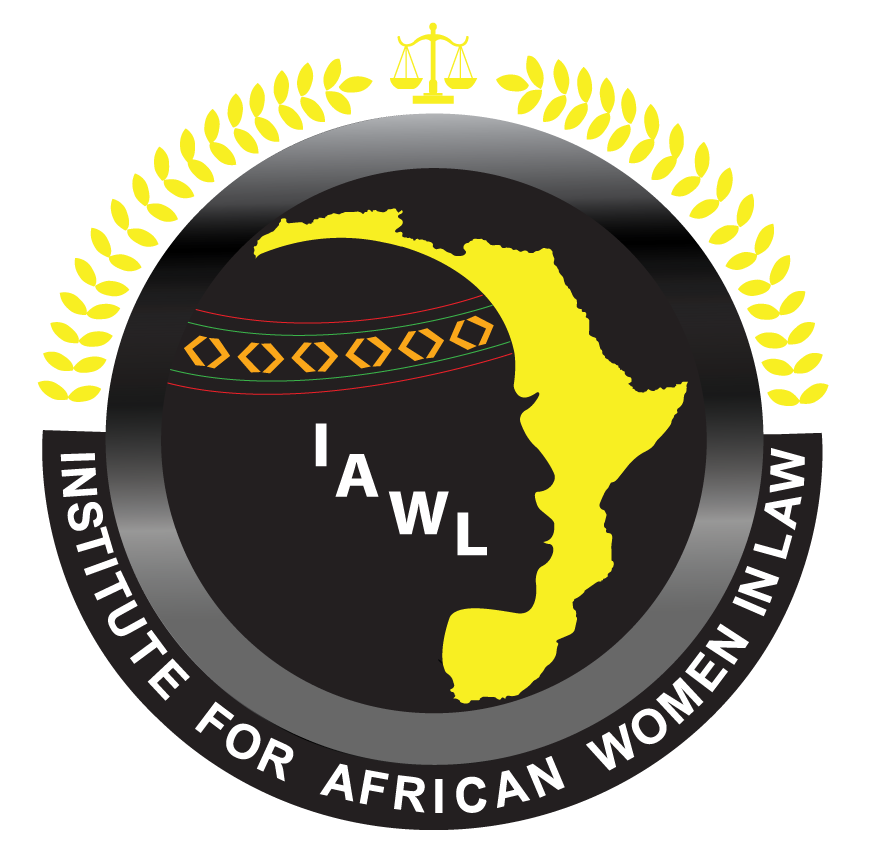COVID-19 Requires a Gender Response
- IAWL

- Aug 13, 2020
- 4 min read
Furaha-Joy Sekai Saungweme
Regional Coordinator, Africa End Sexual Harassment Initiative (AESHI)

Events of a catastrophic nature whether they be public health outbreaks, civil conflict, or economic instability are often experienced by women in a manner which is very uniquely linked to gender constructs. For this reason and in response to the global pandemic, the African Union’s Women, Gender and Development (WGDD) [i] produced guidelines intended to work in partnership with COVID-19 interventions which are tailored to meet the needs of women. The UN Human Rights’ East Africa Regional Office also partnered with the African Union Commission’s Gender Directorate to produce Seven Possible Actions- Women’s Rights and COVID-19 which is described as a ‘tool that States and civil society actors can use to monitor whether Governments are meeting their obligations and duties under international human rights law.’[ii] These two initiatives are cognizant of the existing socio-economic and cultural inequalities which justify and necessitate gender focused COVID-19 strategies and because sexual and gender-based violence are unfortunately inevitable offshoots of manmade or natural disasters they both make reference to this issue.
The WGDD provides nine guidelines relevant for ensuring gender equality and women empowerment during this global pandemic. The most critical guideline addressing gender-based violence falls under the ‘Impact on women’s physical and psychological integrity’ category and was developed to address increasing and alarming reports of domestic violence, child marriage and online sexual exploitations resulting from the lockdowns. Guideline recommendations include setting up hotlines, budgetary allocation, information dissemination, online counseling services, safe houses, speedy prosecutions and police support.
The next guideline which is intertwined with protection and prevention of violence against women outlined in the WGDD document is the category titled ‘Impact on women’s legal protection.’ This guideline recognizes that the ‘disruptive impact of COVID-19 on existing legal, social and judicial structures means that security, justice and social services are likely to be severely curtailed, leaving limited avenues to services, safety and justice such as for survivors of Gender-Based Violence’ and therefore recommends for judicial services to remain operational, for COVID 19 laws to be enacted through a gender lens and for the implementation of provisions in relevant gender focused regional instruments such as the Maputo Protocol[iii] and the Solemn Declaration on Gender Equality in Africa.[iv]
In a similar vein, the Seven Possible Actions- Women’s Rights and COVID-19 publication under action 3 of its 7 point action plan also noted with concern rising cases of gender based violence and reaffirmed state obligations under for example the Maputo Protocol to eradicate violence against women. It mirrors most of the WGDD guidelines addressing violence but places more emphasis on technology innovations to assist women in reporting cases and assisting victims. The guidelines and actions plans are relevant and necessary yet they seem to exist in a vacuum as more cases of violence against women and children are exposed across the continent without most victims experiencing real interventions.
Such gaps are more worrisome given that the perpetrators’ of violence against women in African countries are not just limited to intimate partners but include state sponsored violence which has witnessed security forces using excessive use of force when enforcing lockdown measures; in addition politically motivated acts of violence have continued with impunity in some countries and at a time where women who are subjected to violence and sexual perversions do not even have the option of escaping the country where the harm is occurring.
It is imperative for African governments and African leadership to roll out an integrated gender response to the challenges resulting from COVID-19. Parliamentary responses to violence against women and the socio-economic inequalities disproportionately affecting women and the girl-child during this period must be specifically addressed. Nigeria has been one of the first African countries to begin to work towards this goal when the President Muhammadu Buhari led government announced the immediate inauguration of a Gender-Based Violence Management Committee,[v] after growing national outrage on increased levels of GBV.
The progress of this committee must be carefully monitored and should be informed by the following factors:
1. The need to make the wheel of justice more accessible to victims and at risk categories of women and children by removing barriers to reporting and hostile court settings.
2. Ensuring that legislation on violence against women is developed in manner which is evidence based, taking into account national realities.
3. Allocation of resources including budgetary considerations must be directed towards the legislative priorities enshrined in addressing vulnerable groups of women and children.
4. Holding regular consultations with female parliamentarians, women’s organizations, civic society, grassroots activists and traditional leaders on development and implementation of gender sensitive COVID 19 policy responses.
5. Engaging and constantly negotiating with frontline workers such as nurses of whom a large proportion consist of women and work towards meeting their demands for safety, living wages and compensation as opposed to firing them or criminalizing peaceful acts of protests.
6. Creation of specific institutional mechanisms to monitor implementation and for the collection of statistical data.
7. Mandatory gender awareness training of security sectors especially the police.
8. Protect women’s rights and dignity in the workplace.
Finally, there must be regional and national consensus that violence against women is unacceptable and carries severe penalties. This consensus building process requires the participation of everyone in a period where no woman or girl child can claim total immunity from the dangers and various factors that increase vulnerability to GBV during COVID-19.
[i] Available at https://au.int/en/directorates/women-gender-and-development-wgdd [ii] Available at https://www.ohchr.org/EN/newsevents/Pages/sevenactions.aspx [iii] Protocol to the African Charter on Human and Peoples' Rights on the Rights of Women in Africa. Adopted by the 2nd Ordinary Session of the Assembly of the Union Maputo, 11 July 2003. [iv] Available at https://www.un.org/en/africa/osaa/pdf/au/declaration_gender_equality_2004.pdf [v] Available at https://www.courtroommail.com/president-buhari-inaugurates-gender-based-violence-management-committee/
